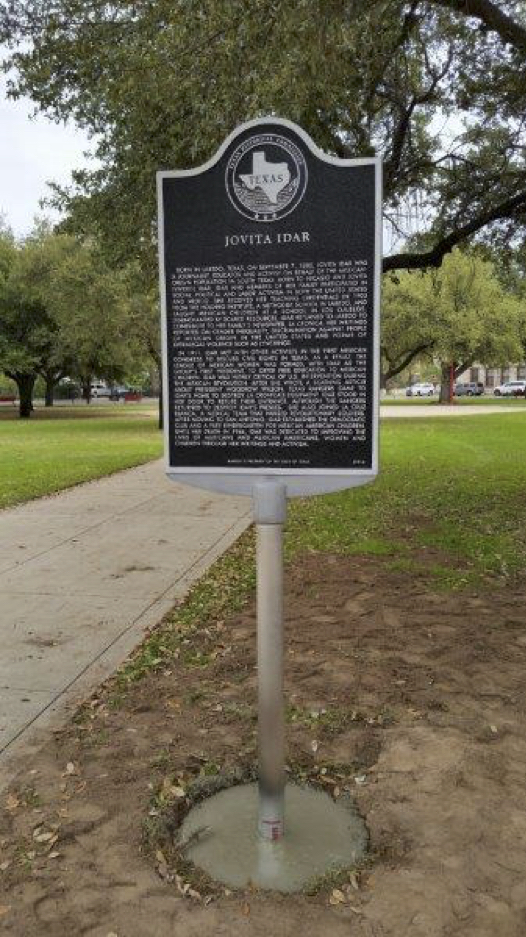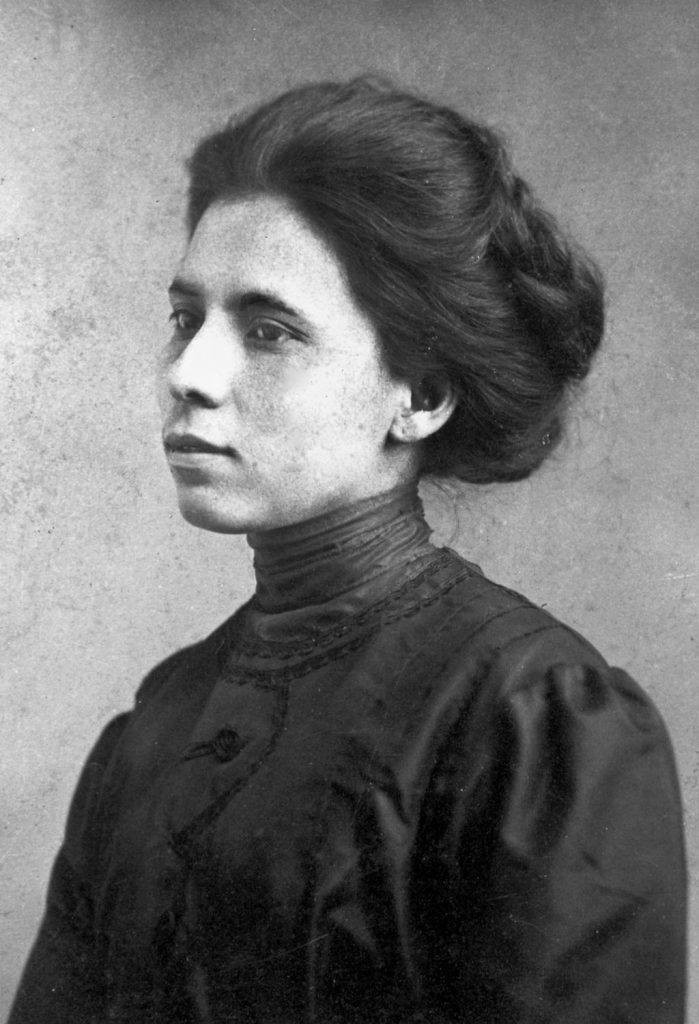Jovita Idar
Born and raised in Laredo, Texas, Jovita Idar (1885-1946) was a prominent activist on behalf of the Mexican-origin population in south Texas, the working class, children, and all women. Idar left a lasting legacy for the history of Texas. She was an early civil rights defender fighting against lynching and other forms of extralegal violence and for better educational opportunities for children, gender equity, and labor rights. She also established a Democratic club and was involved in state politics. Idar challenged the status quo and fought to create a better life for the predominantly Mexican-population of her native south Texas.
Idar is among the most important women of Texas who crossed racial, gender, and national boundaries through her writings and personal action to improve the conditions of Mexican Americans. She dedicated her life to addressing issues of violence and through her writings, articulating a better world for Texas and its residents. She defied the odds, becoming an educator in rural south Texas at the turn of the twentieth century, using her medical expertise to aid troops during the 1910 Mexican Revolution, and writing bilingual political, social, and economic commentaries on issues of international importance. Her legacy also was felt in Texas politics as she contributed to the Texas Democratic Party.
LESSON PLAN
This lesson plan was written specifically for Texas seventh grade classrooms and provides historical context and activities for educators interested in contextualizing the Jovita Idar historical marker. Idar was a journalist, teacher, nurse, feminist and civil rights pioneer who fought for the rights of Mexicans and Mexican Americans living in the early twentieth century. The purpose of this lesson plan is to encourage the discussion and remembrance of a local hero and to gain a better understanding of the context of Jovita Idar’s advocacy.
MARKER INSCRIPTION
Born in Laredo, Texas, on September 7, 1885, Jovita Idar was a journalist, educator and activist on behalf of the Mexican origin population in south Texas. Born to Nicasio and Jovita (Vivero) Idar, Idar and members of her family participated in social, political and labor activism in both the United States and Mexico. She received her teaching credentials in 1903 from the Holding Institute, a Methodist School in Laredo, and taught Mexican children at a school in Los Ojuelos. Disenchanted by scarce resources, Idar returned to Laredo to contribute to her family’s newspaper, La Crónica. Her writings reported on gender inequality, discrimination against people of Mexican origin in the United States and forms of extralegal violence such as lynchings.
In 1911, Idar met with other activists in the first Mexican Congress to discuss Civil Rights in Texas. As a result, the League of Mexican Women was formed, with Idar as the group’s first president, to offer free education to Mexican children. Idar was highly critical of U.S. intervention during the Mexican Revolution. After she wrote a scathing article about President Woodrow Wilson, Texas Rangers came to Idar’s home to destroy La Crónica‘s equipment. Idar stood in her door to refuse their entrance, although the Rangers returned to destroy Idar’s presses. She also joined La Cruz Blanca, a medical team that nursed revolutionary soldiers. After moving to San Antonio, Idar established the Democratic Club and a free kindergarten for Mexican American children. Until her death in 1946, Idar was dedicated to improving the lives of Mexicans and Mexican Americans, women and children through her writings and activism.


